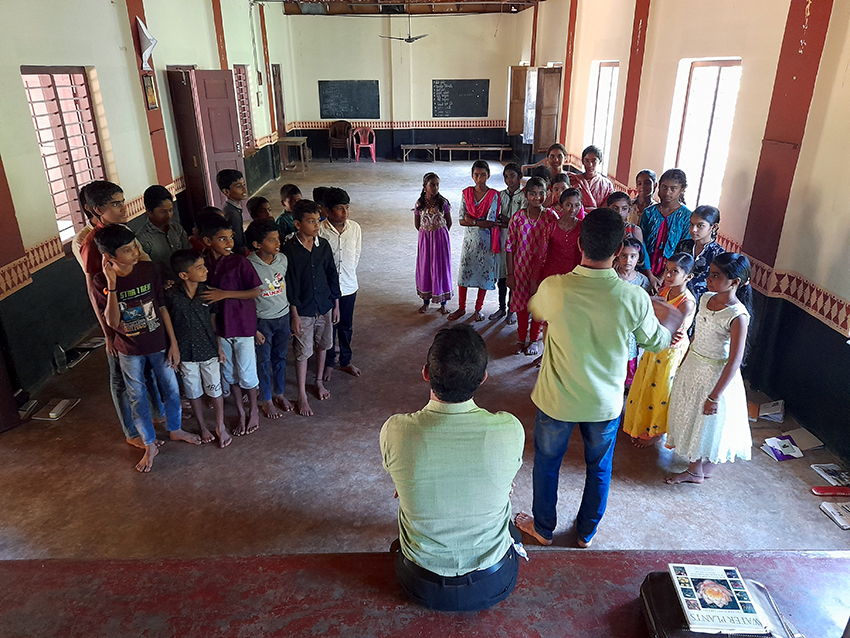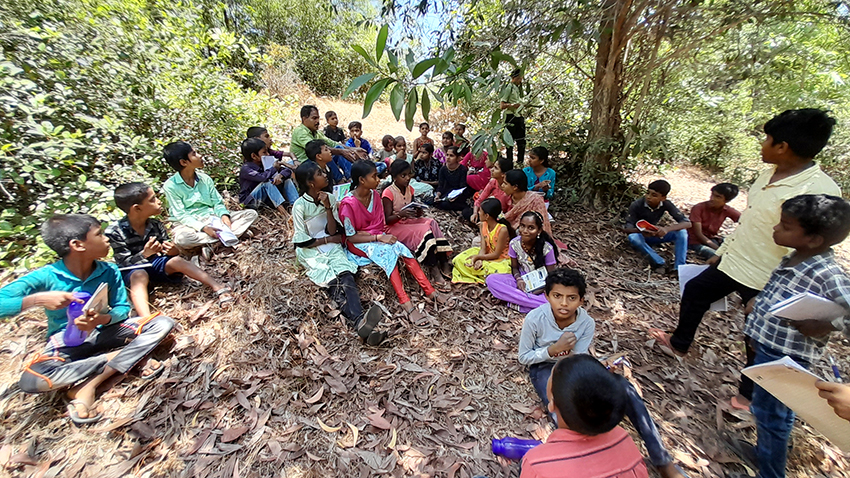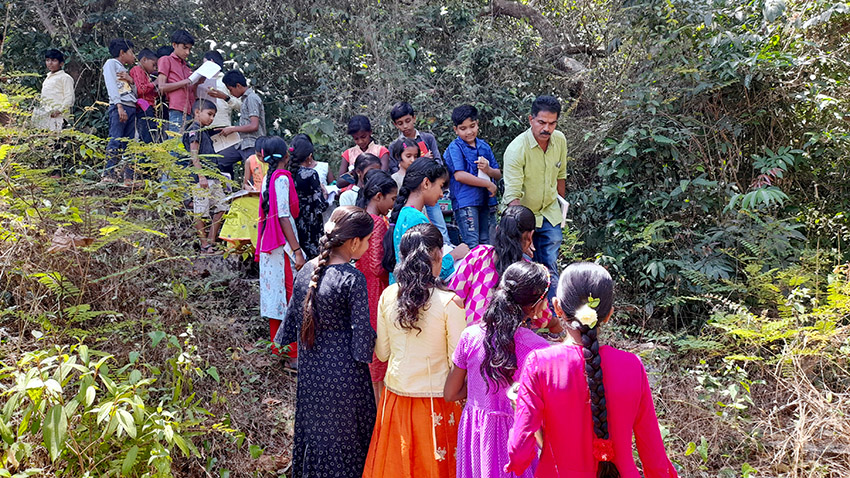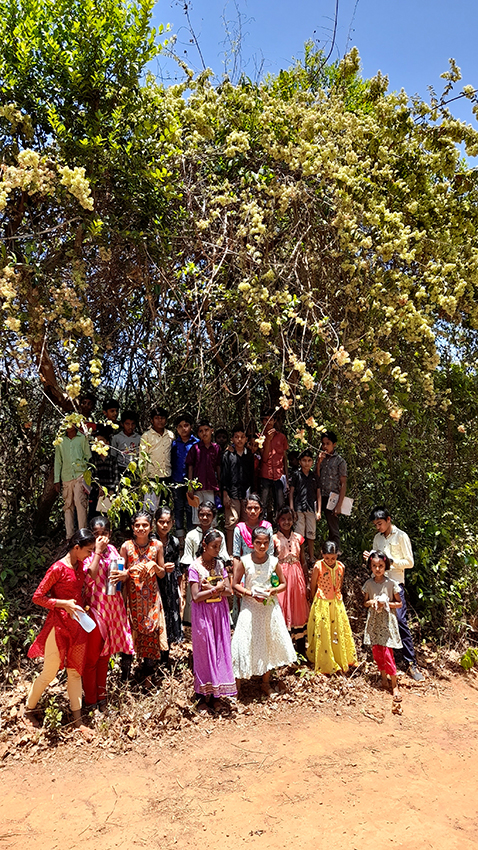Aravind K




Project Period: One year two months
This Foundation Project implemented by IFA will engage sixth and seventh grade students of the Government Higher Primary School, in Moodambail village, Dakshina Kannada district in a project titled Chiv Chiv Hakkiyuu mattu Haaruva Chitteyu (Hums of Birds and Flying Butterflies). They will learn and document the names of birds, reptiles, and plants in the local dialect in an attempt to bridge their curriculum in science, language and social science. Aravind K is the Coordinator for this project.
Aravind K is the Head Master from Bantwala in Dakshina Kannada district. He is a writer, blogger, environmentalist and photographer. He has completed his Masters in Science and has conducted several community awareness programmes, with respect to irrational beliefs and superstitions. Given his experience he is best placed to be the Coordinator of this Foundation Project of IFA.
Documenting vocabularies of dialects is extremely significant for language studies. They have rich content and can add value to subjects such as sociology, zoology, and botany. The words need documenting since in many cases being forgotten due to changing needs of time or are being used with changed meanings.
Moodambail village occupies a unique position in the map of Tulunadu or Dakshina Kannada district when it comes to languages. There are as many as seven languages used actively by people in this village. Though the administrative language is Kannada - Tulu, Beary, Malayalam, Marathi and Konkani are also spoken. Furthermore there are so many dialects as well. The version of Tulu spoken here varies significantly from the standard Tulu and is generally considered difficult for the people from northern Dakshina Kannada and Udupi districts.
Titled Chiv Chiv Hakkiyuu mattu Haaruva Chitteyu (Hums of Birds and Flying Butterflies), this project hopes to record the story of ethno-biological knowledge through the local dialect in the village, creating connections with the worlds of science, language and social science for the students. It will document local words for birds, reptiles and insects around the village and with it record the cultural and traditional knowledge embedded in the words as well. The words will be collected from a diverse range of people who speak it across castes and occupations.
As the words are being collected Aravind is planning a chain of activities where he will invite science teachers, bird watchers, social scientists, writers, and theatre artists to conduct workshops for the students. In these workshops they will engage in conversations, interpretations and writing about their data collection. The findings and observations will be used to make an illustrated dictionary, dramatic presentations, and storytelling. The students will also use these learnings to work on their science, languages and social science curriculum.
This project proposes a fresh perspective on using dialect documentation to create pedagogical materials for the classrooms. However, there are limitations too. While the first dictionary will not be perfect, it will be a good resource for future research.
The outcomes of the project will be an illustrated dictionary, a series of performances in the presence of school staff, an exhibition and a publication that includes writings of children. The Project Coordinator’s deliverables to IFA with the final report will be the dictionary, the publication and photographs and video documentation of the entire project including the performance and exhibition.
This project suitably addresses the framework of IFA’s Arts Education programme in the manner in which it attempts to connect students and schools to the cultural knowledge of the region they live in.
IFA will ensure that the implementation of this project happens in a timely manner and funds expended are accounted for. IFA will also review the progress of the project at midterm and document it through an Implementation Memorandum. After the project is finished and all deliverables are submitted, IFA will put together a Final Evaluation to share with Trustees.
